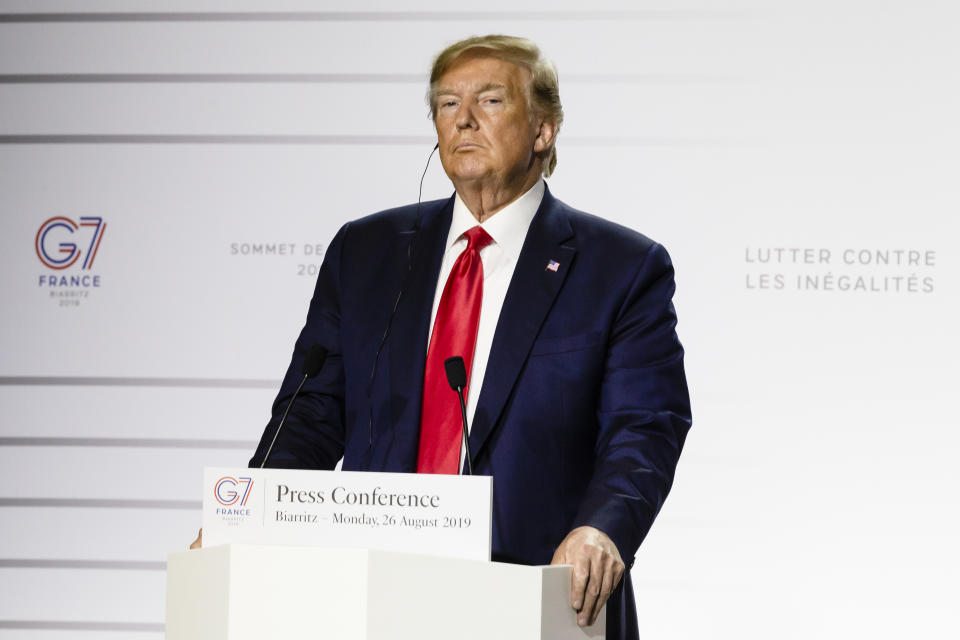Former U.S. ambassador: Trump's trade war will have 'long term consequences'
U.S. President Donald Trump’s foreign policy strategy is causing “a lot of damage … to the system with long term consequences,” warns a former ambassador.
“This is a president who is very protectionist, he does want to repatriate supply chains back to the United States,” Anthony Gardner, a former U.S. ambassador to the European Union (EU), told Yahoo Finance’s The Ticker (video above). “He doesn't believe in the multilateral trade order, or the institutions like the WTO. So a lot of damage is being done to the system with long term consequences.”
Other experts in the foreign policy field agree with Gardner.
Kristen Boon, a law professor at Seton Hall University, argued that the U.S. shift away from multilateralism and international organizations — established in the aftermath of World War II — ”signals a shift away from engagement and cooperation that may put us on a path towards future domestic and international unrest.”
Trump has followed an “America first” policy, ditching multilateral treaties and pursued a unilateral strategy against China with the trade war.

During the G7 international summit in France, he was asked about his foreign policy strategy regarding the ongoing talks, as his statement at times appear conflicting.
“It’s the way I negotiate, it’s done very well for me over the years,” responded President Trump. “And it’s doing even better for the country.”
‘Frontal attack’ on China’s economic system
Gardner, who was appointed by former President Barack Obama and served as ambassador to the EU from 2014 to 2017, also said that Trump’s demands for China are being perceived as a “full frontal attack on their economic system.”
“The President has ratcheted up pressure in some ways that I think are actually not useful, because he's made this a real conflict of two systems,” Gardner said. “And as I understand it, some of the demands he's made are so fundamental, that they require the Chinese to change some key parts of their economic system, including the role of the state owned enterprises, which I think the Chinese are going to be extremely reluctant to give up on.”

He continued: “I think they're seeing this is a frontal attack on their economic system and not just a targeted series of requests to change the make their market more open, for example, to U.S. investment and U.S. exports.”
—
Aarthi is a writer for Yahoo Finance. Follow her on Twitter @aarthiswami.
Read more:
Kyle Bass: Hong Kong's political turmoil occurs atop a 'financial time bomb'
Hong Kong protests 'could have ripple effects very easily into China,' Eurasia Group's Hirson says
Read the latest financial and business news from Yahoo Finance
Follow Yahoo Finance on Twitter, Facebook, Instagram, Flipboard, SmartNews, LinkedIn, YouTube, and reddit.

